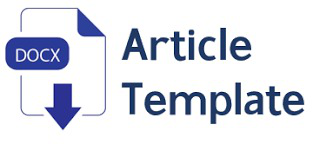Kewenangan Peradilan Tata Usaha Negara dalam Mengadili Sengketa Keputusan Fiktif Negatif dan Fiktif Positif
DOI:
https://doi.org/10.14421/sh.v6i2.2019Abstract
The results of the research indicate that, solving the problems through the State
Administrative Court in the case of a request submitted to the State Administration
Officers / Officials in the context of providing public services can be passed through two
ways, namely through negative and positive fictitious claims. The existence of both ways
in the State Administrative Court is expected to be used as a mechanism for civil
persons or legal entities in claiming their rights to be served and as a means of control or
supervision for public service providers to work well in serving the community, because in
the end, the public is expected to be able to implement good governance in order to
provide legal certainty and justice for the community. The results of the research indicate
that, solving the problems through the State Administrative Court in the case of a
request submitted to the State Administration Officers / Officials in the context of
providing public services can be passed through two ways, namely through negative and
positive fictitious claims. The existence of both ways in the State Administrative Court
is expected to be used as a mechanism for civil persons or legal entities in claiming their
rights to be served and as a means of control or supervision for public service providers to
work well in serving the community, because in the end, the public is expected to be able
to implement good governance in order to provide legal certainty and justice for the
community.
References
A.Siti Soetami, 2007, Hukum Acara Peradilan Tata Usaha Negara, Refika
Aditama, Bandung.
Indroharto, 2003, Usaha Memahami Undang-Undang Tentang Peradilan
Tata Usaha Negara, Pustaka Sinar Harapan, Jakarta.
Marbun, S.F. dan Moh. Mahfud MD, 2006, Pokok-pokok Hukum
Administrasi Negara, Liberty, Yogyakarta.
Muchsan, 1981, Beberapa Catatan tentang Hukum Administrasi Negara dan
Peradilan Admnistrasi di Indonesia, Liberty, Yogyakarta.
________, 1981, Beberapa Catatan Tentang Hukum Administrasi Negara dan
Peradilan Administrasi Negara di Indonesia, Liberty, Yogyakarta.
_________, 1981, Seri Hukum Administrasi Negara: Peradilan Administrasi
negara, Liberty, Yogyakarta.
_________, 1982, Hukum Kepegawaian: Pengangkatan dalam Pangkat Pegawai
Negeri Sipil (Suatu Tinjauan dari Segi Yuridis), Bina Aksara, Jakarta.
_________, 1982, Pengantar Hukum Administrasi Negara Indonesia, Liberty,
Yogyakarta.
_________, 1988, Pengangkatan dalam Pangkat Pegawai Negeri Sipil, Liberty,
Yogyakarta.
_________, 2007, Sistem Pengawasan Terhadap Perbuatan Aparat Pemerintah
dan Peradilan Tata Usaha Negara di Indonesia, Liberty, Yogyakarta.
Purbopranoto, Mr. Kuntjoro, 1981, Perkembangan Hukum Administrasi
Indonesia, Binacipta, Jakarta.
S.F.Marbun,dkk, 2004, Dimensi-Dimensi Pemikiran Hukum Administrasi
Negara, UII Press, Yogyakarta.
Titik Triwulan dan Ismu Gunadi Widodo, 2011, Hukum Tata Usaha Negara
dan Hukum Acara Peradilan Tata Usaha Negara Indonesia, Kencana
Prenada Media Group, Jakarta.
Udiyo Basuki, 2013, Pedoman Beracara Peradilan Tata Usaha Negara, SUKA
PRESS, Yogyakarta.
Victor S, Soedibyo, 1992, Pokok-Pokok Peradilan Tata Usaha Negara, PT.
Rineka Cipta, Jakarta.








